Home »
Misc »
How to impress your coach in basketball
How to impress your coach in basketball
Basketball on the Edge - Top 8 Ways to Impress Your Basketball Coach
How can any basketball player catch the attention of their coach at tryouts or during practice? What are the things good coaches are looking for when they watch a particular player? This list is a great place to start when you want to make a team, earn more minutes, and gain your coach’s respect.
1. When your coach is talking, listen and pay attention.This may seem simple, but for young players with shorter attention spans it can be difficult.
Try to make eye contact with your coach. When they look at you, your eyes should be looking back at them.
Don’t dribble a basketball while your coach is talking!
If your coach is speaking directly to you, nod or respond verbally when your coach is done talking. That way they’ll know that you have understood what they said.
Don’t fool around in line or on the sideline when you are not participating in a drill. This is the quickest way to turn off your coach.![]() If you have a friend on the team that is always playing around, don’t stand by them! Guilt by association is powerful.
If you have a friend on the team that is always playing around, don’t stand by them! Guilt by association is powerful.
Coaches HATE when players don’t listen! Coaches LOVE when players listen.
2. Hustle.Your coach can teach you how to shoot, pivot, execute a crossover dribble, etc. but they can’t teach you how to hustle! That comes from inside of you.
Hustle during drills, hustle to the coach when they gather the team together, hustle during games and scrimmages, hustling is NEVER wrong!
Hustling is not a skill that can be taught. It is a mindset that you must bring to everything you do on the basketball court.
3. Be the best at something on your team.A coach will always have room on the team for someone who is the best at a particular skill.
The Best Shooter.
The Best Rebounder.
The Best Passer.
The Best Defender.
The Best Ballhandler.
Become the best on your team at a particular skill and your coach will notice!
4.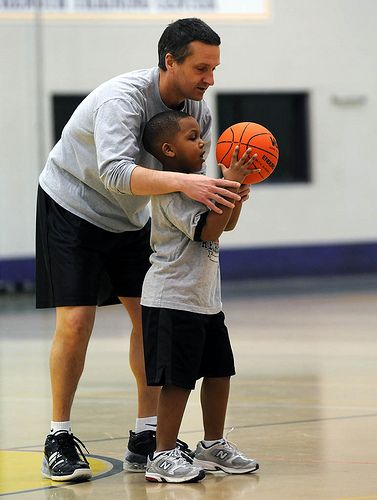 Communicate.
Communicate.Good coaches love it when players talk out on the court. Talk on defense, talk on offense.
Communication helps make your teammates better. It makes it easier for the TEAM to function together as a unit.
Great players are talking to their teammates constantly. Call out screens, direct teammates where to be, point out cutters, encourage your teammates with positive talk. “Hey, nice pass!” is an invaluable comment that goes a long way towards building up team spirit.
5. Don’t let mistakes affect your effort.Everyone makes mistakes. That is how learning occurs. Don’t compound your mistake by pouting or not continuing to give your best effort.
Never let a mistake become two mistakes through lack of effort or concentration.
Learn from your mistakes and try to correct them.
6. Be a Leader.Demonstrate good sportsmanship at all times.
Be enthusiastic at practice. No coach wants to beg and plead with you every day to get you to play hard.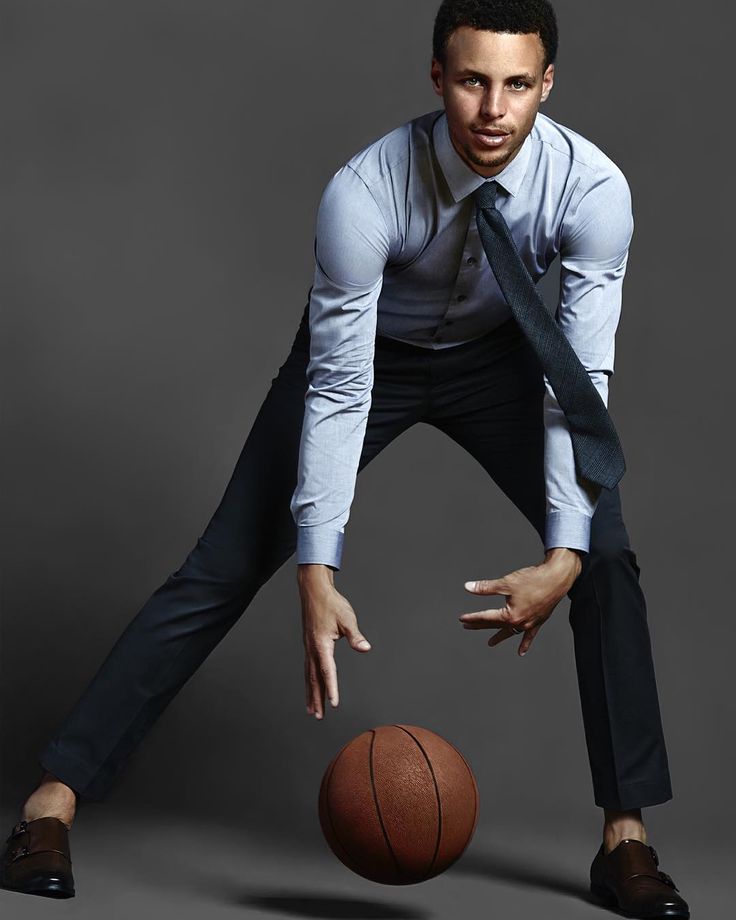
Be a good teammate that other players want to play with, share the ball, be positive, and play with passion.
7. Show up early.If you are the first player at practice every day and the last to leave your coach will notice the extra work you are putting in.
Be ready to go the moment the tryout or practice starts.
8. Be Confident.Skill building is confidence building.
The more you train and develop your basketball skills the more confident you will be.
Great players are confident, not cocky. Great players have the attitude that they can compete with and beat anyone. Great players know they put in the work. All great players have a little swagger that says, “I’ve worked harder than you and I believe that I can beat you!”
Coaches love confident players who will take on the challenge of guarding the other team’s best player or taking the last second shot.
Put in the work and be confident!
Coaches love to find players who fit this description. 6 out of the 8 items on this list have nothing to do with basketball. Developing those skills is a mindset. Combine that mindset with relentless practice and you’ll be on your way to impressing your coach and reaching your basketball goals!
6 out of the 8 items on this list have nothing to do with basketball. Developing those skills is a mindset. Combine that mindset with relentless practice and you’ll be on your way to impressing your coach and reaching your basketball goals!
9 Ways to Impress Your Coach & Make the Team – HoopGrind
June 14, 2017 June 14, 2017
I’m assuming you already have at least a little bit of talent and that you work hard. However, whether you are a role player looking to get more minutes, an established “star” looking to get to the next level, or just looking to impress the coach during tryouts, here are 9 things you can do to help accomplish your goal.
- Play with Passion
Most basketball coaches love the game (that’s why they coach!) and they want to be around players who love it too. Enthusiasm, attitude, and competitiveness are all contagious. Encourage everyone on the court – even those who are going after your spot. Do everything with the highest level of energy possible.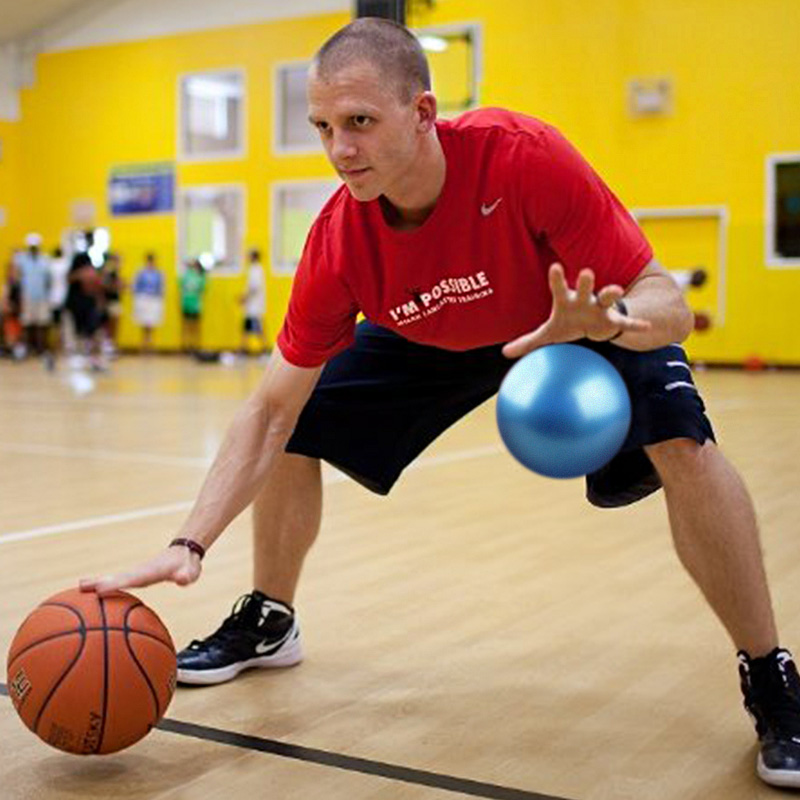 Clap, whistle, and lead the team in high fives! Project your inner Magic Johnson and be the teammate that everyone wants to have around.
Clap, whistle, and lead the team in high fives! Project your inner Magic Johnson and be the teammate that everyone wants to have around.
- Play Smart
It’s much easier to teach a player how to improve their ball handling and defense than it is to improve their basketball IQ. Focus on how all the drills and offenses are supposed to be executed and develop the reputation of being a “quick learner.” Since practice time is limited, all coaches want players who pick things up quickly because it saves time and makes things easier for everybody.
- Pay Attention
When the coach is talking look him or her right in the eye and listen like your career depends on it! Ask appropriate questions so he will know you are listening and truly want to understand what he is talking about and explaining. Don’t be afraid to speak up if he asks a question and you know the answer.
- Be the Beast of the Gym
When it comes to playing be tough, hardnosed, scrappy, and physical.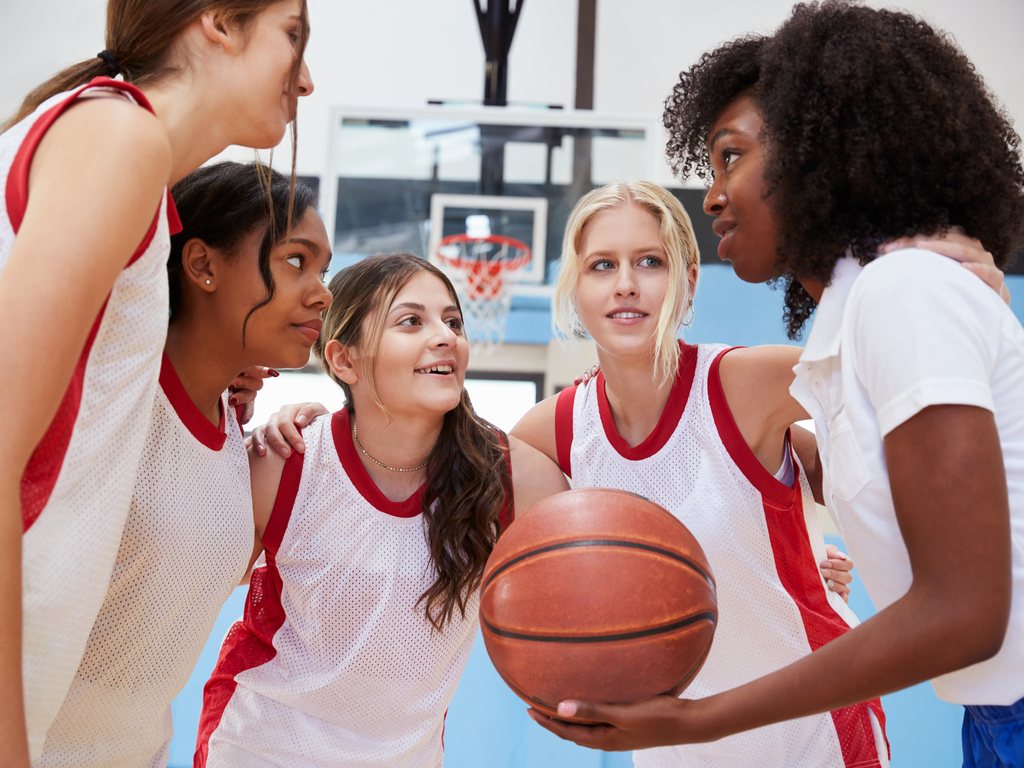 Box out hard, set hard screens, fight over screens hard, defend hard, run hard and go after every loose ball and rebound like it’s a sack of hundred dollar bills. So few players approach the game like this anymore so if you play like a beast you will surely stand out and be noticed.
Box out hard, set hard screens, fight over screens hard, defend hard, run hard and go after every loose ball and rebound like it’s a sack of hundred dollar bills. So few players approach the game like this anymore so if you play like a beast you will surely stand out and be noticed.
- Be the First in Line
When drills are being demonstrated and run most kids are going to try and slip to the back of the line hoping they won’t be noticed. Not you because you want to be noticed! You race to the front of the line! That way coaches will notice you both as a player and as a leader and you’ll get in more repetitions which means more chances to look good.
- Be in Better Shape than Everyone Else
It’s plain and simple – the better shape you’re in the better you’re going to look – especially at the end of practice or on the second or third day of tryouts when everyone else is exhausted. By coming to tryouts in shape, the coaches will know you are serious about making the team and didn’t just decide to try out at the last minute.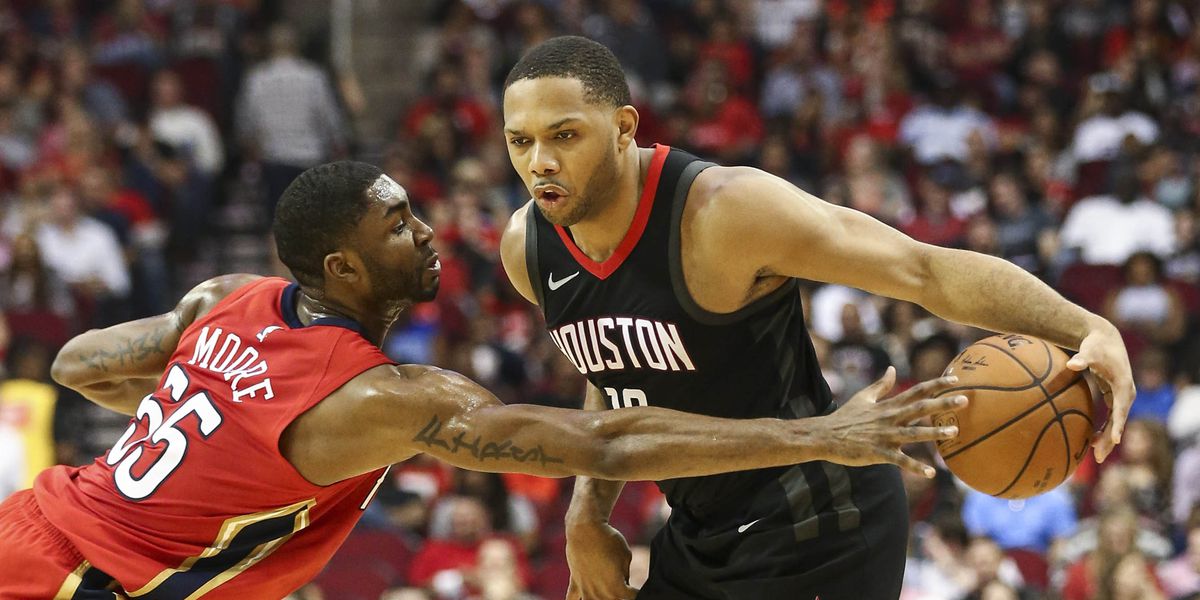
- Talk on Defense
Coaches go to bed every night dreaming of having players talk on defense. Why? Because so few actually do talk! “I got #14,” “Help this side,” “Bring him my way,” “I’ve got the lob,” and “make him go left,” are just a few examples of things you can say that will help you get noticed. Not only that but it will also improve your defense and give you an opportunity to show off your basketball IQ – all great things when you are trying to make the team.
- Be Early & Stay Late
Not on time – early. In fact try to be the very first one there. Then when practice is over don’t be the first one to rush out of the gym. Grab a ball and head to a basket and get some more shots up while everyone else heads out the door. Chances are the coach will come over and spend a few extra minutes working with you. Even if he just yells “Ok time to go!” at least he will know you are trying to get in as much work as possible and that you love being in the gym.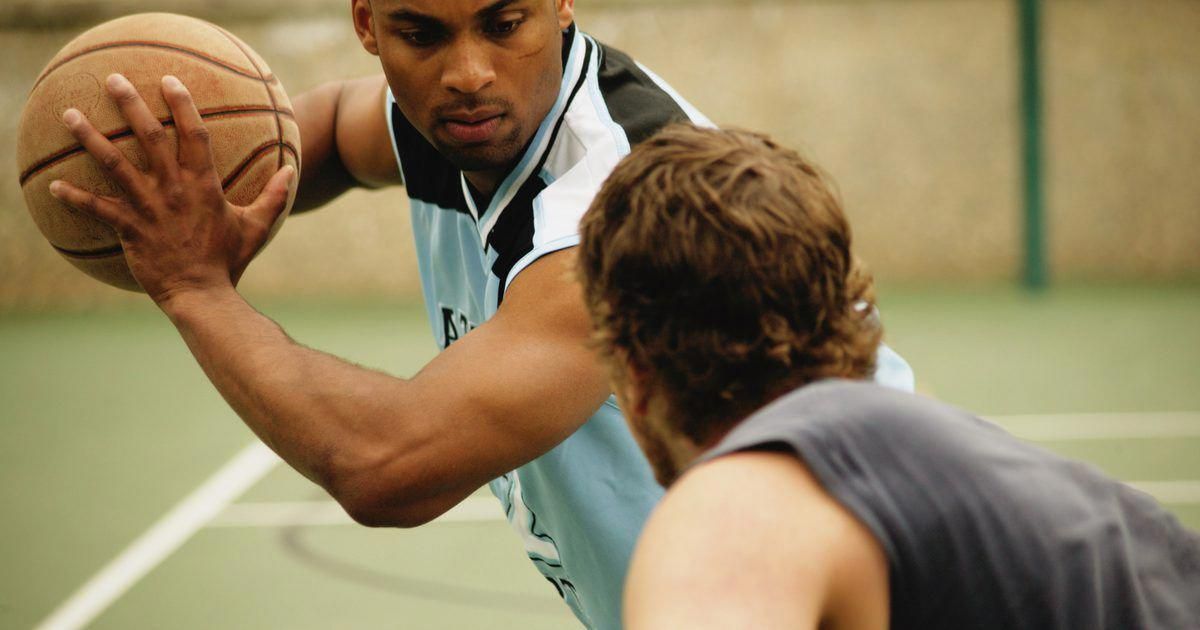
- Talk to the Coach
Be a person not just a number. Ask him how you did and what should you have done better. After the tryout is over make sure you thank him for the opportunity and that you’re looking forward to working with him. Coaches like drawing up plays and running practices but coaching is still relationship driven. All coaches want players they can talk to and relate to yet many young people don’t take advantage of that. Let’s face it, if a coach knows you and likes you then chances are you are going to get a closer look than a complete stranger will get.
How to Write a Basketball Coach Resume (with Example) • BUOM
By Indeed Editorial Team
March 25, 2022
A basketball coach helps basketball players prepare for competition against other basketball teams in a league or school. If you're considering getting a job as a basketball coach, it's important to learn how to write an effective resume. Learning this can help you impress hiring managers and give you a better chance of getting the job. In this article, we will explain what to include in a basketball coach resume, discuss how to write a basketball coach resume, list the skills that should be mentioned in this resume, and provide you with a resume template and example.
Learning this can help you impress hiring managers and give you a better chance of getting the job. In this article, we will explain what to include in a basketball coach resume, discuss how to write a basketball coach resume, list the skills that should be mentioned in this resume, and provide you with a resume template and example.
What to include in a basketball coach resume
A basketball coach resume requires certain information to help hiring managers better assess your candidacy. What to include in a basketball coach resume:
-
Personal and contact information. Including your name, phone number, and email address will help hiring managers contact you if they want to schedule an interview.
-
Professional resume. A resume summary is a short paragraph that details your skills, awards, and work experience in the field. Your resume essentially introduces you to the hiring manager and gives them an idea of what they can expect from the rest of your resume.
-
Work Experience: When writing a resume, it is important to include your relevant work experience so that employers can determine if you are qualified for the job.
-
Skills: Listing your skills helps the hiring manager understand your job-related abilities. When completing this section, use any keywords or phrases used in the job posting to get your resume noticed by hiring managers.
-
Education: Many employers require a bachelor's degree in some area, such as physical education or some form of athletic training. Including this information gives hiring managers some insight into your academic background.
How to Write a Basketball Coach Resume
An effective resume gives hiring managers an accurate picture of your skills and credentials. If your resume matches the type of candidate they are looking for, they may request an interview and end up advancing you through the interview process. Use these steps to write a basketball coach resume:
1.
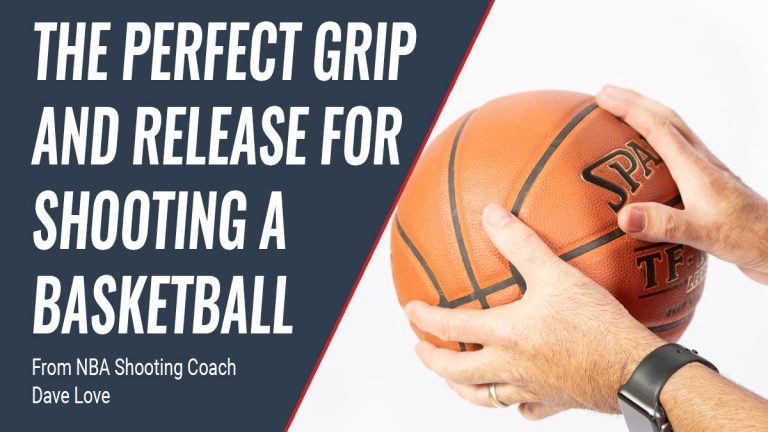
Provide your contact details
If the hiring manager thinks you are qualified for the position they are hiring for, they may request an interview. At the top of your resume, include your full name. On a separate line, include your phone number and work email address so that the hiring manager can contact you.
2. Write a resume resume
Create a short resume section below your contact information. A summary of a resume briefly introduces you to the hiring team and includes information about your skills, experience, and accomplishments. As a basketball coach, consider including things like your leadership skills, your team's participation in your state's championship, or your coaching experience at a certain level. Make sure your resume gets the hiring manager interested in reading the rest of your resume.
3. List your work experience
Employers usually want to know if you have relevant work experience before making a hiring decision. Include a section for your work history that starts with your most recent and up-to-date position. For example, as a basketball coach, you may have previously been a basketball coach at another school or even an assistant coach. For each role, list the job title, dates you were employed, your former employer's name, location, and your responsibilities in that role.
For example, as a basketball coach, you may have previously been a basketball coach at another school or even an assistant coach. For each role, list the job title, dates you were employed, your former employer's name, location, and your responsibilities in that role.
4. Highlight your skills
Create a section dedicated to your skills as a basketball coach. List them on one line to better organize and organize your resume. Before creating a list of skills, read the job posting and pay attention to any keywords or phrases. Include them in your resume so that it successfully passes through the applicant tracking system and reaches the hiring manager.
5. Mention your academic history
Please indicate your education at the bottom of your CV. While not always required, many basketball coaches have a bachelor's degree in areas such as sports management, physical education, or kinesiology. Having a degree highlights your career interests and can strengthen your candidacy.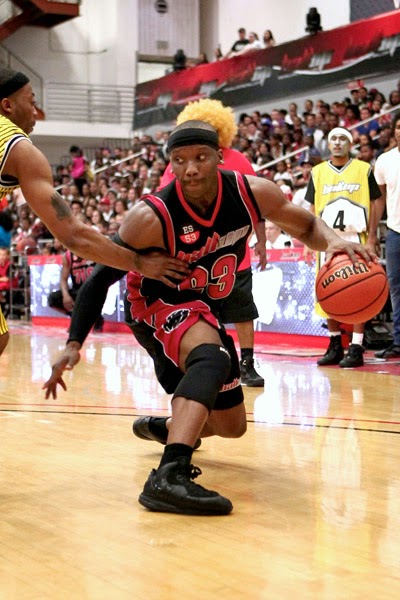
Skills to List on a Basketball Coach Resume
When you list your skills on a basketball coach resume, make sure you present yourself as an all-around candidate. Make sure the skills you include highlight your playing experience, knowledge of the game, proper technique, and passion for playing and coaching. Keep in mind that while it is important to understand the game, you must also help the player realize their abilities, offer support, and manage the different personalities of the players. Consider adding these skills to your resume as a basketball coach:
-
Leadership: This skill helps basketball coaches manage the team. Providing guidance and advice to players can help them develop their skills on the court.
-
Counseling: A basketball coach uses this skill to guide his players and provide them with the mental and emotional strength to play.
-
Communication: A basketball coach uses his communication skills to share games and strategies with his team. Their communication skills also help them show what their players can improve.
Their communication skills also help them show what their players can improve.
-
Basketball Knowledge: It is important for a basketball coach to understand the basics of the game. This will help you explain the nuances of the game and provide both the rules and the details.
Sample Basketball Coach Resume
When writing a basketball coach resume, it's important to follow a specific format. A clear layout can help hiring managers quickly review your credentials and make it easier for them to see if you're a good fit for the position. Use this template to format your basketball coach resume:
[Full name]
[Phone number] | [Email address] | [City, State]
Professional resume
[Short summary that details your relevant skills, experience and accomplishments as a basketball coach]
Experience
[Job Title], [Start date–End date]
[Company Name] , [Location]
-
[Job duty]
-
[Job duty]
-
[Job duty]
-
[Job3
duty] 0013 [Job duty]
[Job Title], [Start date–End date]
[Company Name], [Location]
-
[Job duty]
-
-
[0 duty]
[Job duty]
Skills
[Skill], [skill], [skill], [skill]
Education
[Degree earned]
[Granting institution], [graduation year]
Sample Basketball Coach CV
Here is an example basketball coach resume to help you write your own:
Duncan Smith
555-555-5555 | johnsmith@email. com | Monterey, CA
com | Monterey, CA
Professional CV
Dedicated basketball coach with seven years of high school teaching experience. Well versed in basketball analytics and player training with a passion for developing a professional basketball team.
Experience
High School Basketball Coach Aug 2017 - Present
Granger High School, Monterey, CA
-
Organization and management of team practice and training
-
Create innovative games and test them during the fights.
-
Determine what strategies make up the team action plan
-
Analyze the performance of each player
-
Review game footage to identify strengths and areas for improvement
- June 2017
Secondary School of Gregory, Moneters, California
Skills and abilities
Leadership, basketball knowledge, planning, communication
Education
Bachelor's degree in kinesiology
Atlanta University
The role of the coach in shaping the personality of young basketball players
Basketball is the most interesting ball game, it is a means of physical development and education of young people.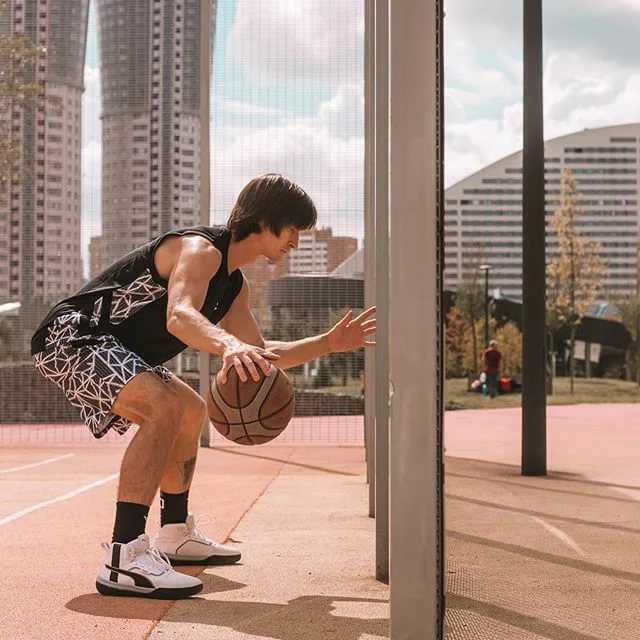 [3].
[3].
An American physical education teacher, professor at Springfield College, in 1891 came up with a game that could be played indoors in a relatively small space. This game was called "basketball" [6].
Basketball helps to develop perseverance, courage, determination, honesty, self-confidence, a sense of teamwork, responsibility to the team.
Basketball consists of natural movements (walking, running, jumping) and specific motor actions without the ball (stops, turns, side steps, feints, etc.), as well as with the ball (catching, passing, dribbling, throwing). Confrontation, the goals of which are to take the opponent's basket and protect one's own, causes the manifestation of all physical qualities vital for a person: speed, speed-strength and coordination abilities, flexibility and endurance. Achieving a sports result requires the players to have a sense of purpose, perseverance, determination, courage, self-confidence, a sense of collectivism [5].
Such a comprehensive and complex impact on those involved gives the right to consider basketball not only an exciting sport, but also one of the most effective means of physical and moral education in different age periods [7].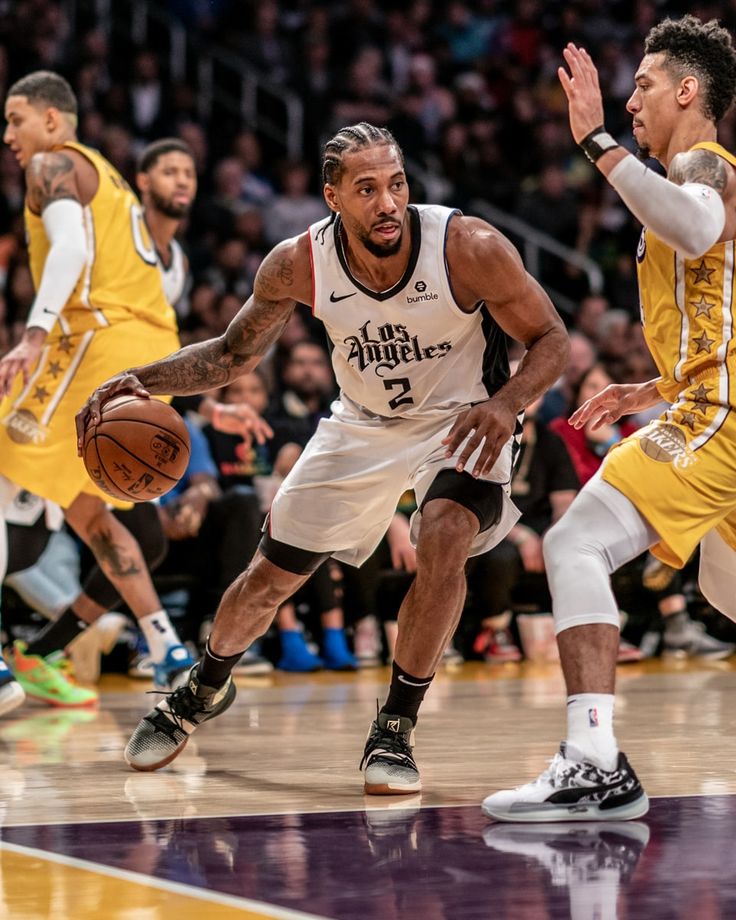
Therefore, basketball is included in the program of education and training of children, starting from kindergartens, schools and ending with universities.
Rights and responsibilities of players
Schoolchildren are the same people with their own character, developmental features, opportunities and rights, psychology. The coach must always remember this and respect them. Children's sports schools determine the following rights of young athletes: to participate in sports competitions of various levels and qualifications, the level of which corresponds to their abilities and age. A player must train for a certain number of days and participate in a certain number of games, and this must be done even when you don’t feel like it at all. Responsibilities mean that in some cases the player must sacrifice his personal desires, think about others, and not just about himself, and maintain discipline. Example: one young player does not want to go to training and does not go.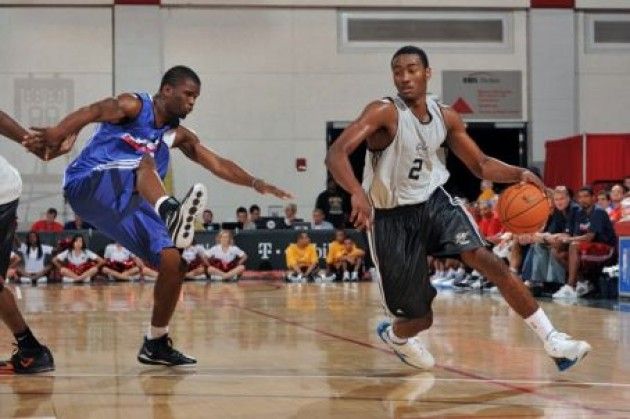 Another player also does not want to go to training, but, fulfilling his duties to the team, he goes to train [4].
Another player also does not want to go to training, but, fulfilling his duties to the team, he goes to train [4].
Strengthening your health with basketball
Proper organization of basketball lessons is necessary for physical development, gives positive emotions, allows you to develop good habits when playing sports: organize proper nutrition, observe hygiene requirements, take care of your health. But basketball training alone cannot provide a comprehensive development of physical qualities: it is necessary to include elements from other sports in the training process, such as athletics, acrobatics, swimming, etc. When classes are properly organized and they are led by a qualified specialist, this gives good result. If classes are conducted without taking into account the physical capabilities of a young athlete and the load turns out to be too great for him, it is possible that he will stop training. The constant control of the coach-teacher over the state of health of the young player will help to avoid negative consequences [2].
Responsibility to the team
It is very important to instill in children a sense of responsibility for the success of the team. For example, a defender must be able to keep one on one against an attacker. He is personally responsible for the result of his actions, which affects the result of the entire team. Friendly and official games are very useful. Therefore, it is very important that the coach emphasizes the importance of the interaction of players and builds training in such a way that each athlete is aware of his responsibility to his partners and team [7].
Example: In a competition, a team wins at first, but after the playing time has expired, they begin to lose. Children begin to blame not themselves, but others, it turns out that a player with a weak psychological state quits playing and goes to the locker room, letting the whole team down. And of course, the team lost the end of the game. The player let down not only the team, but also the coach with his behavior.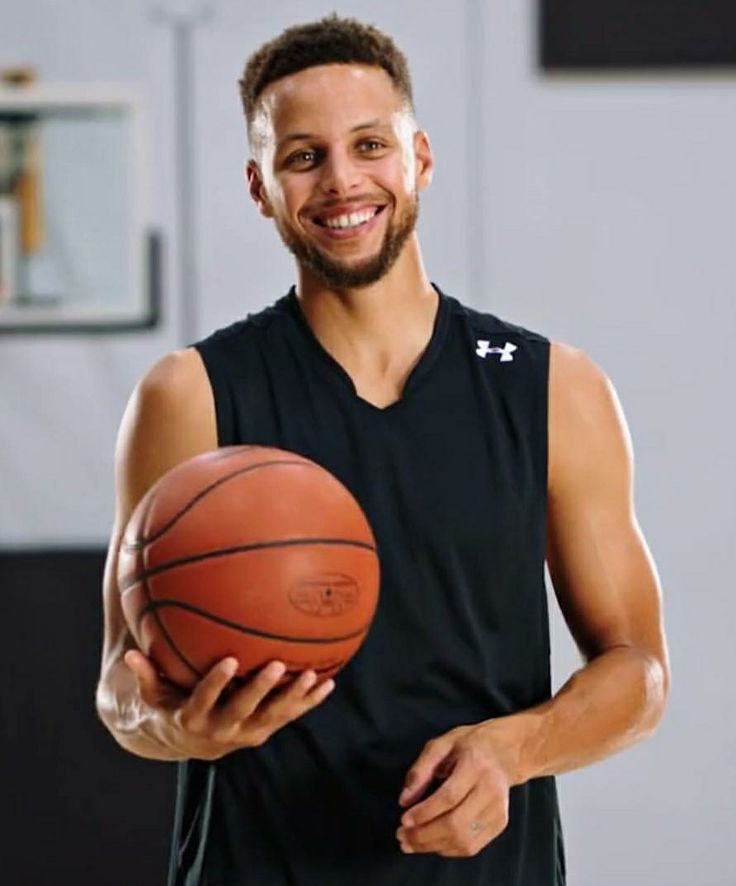 In such cases, the coach must be ready for various psychological situations and make a change in time, take a minute break, but in no case shout at the children, but calmly explain tactical actions in defense and attack.
In such cases, the coach must be ready for various psychological situations and make a change in time, take a minute break, but in no case shout at the children, but calmly explain tactical actions in defense and attack.
Rule Compliance
When playing basketball, they must adhere to the rules of training and the rules of the game, as well as fulfill their personal duties in the team. Students must learn to work in a team. And the basketball team is the best place to develop these qualities [6]. Example: it happens that children play aggressively in training, which leads to various injuries. The coach must explain to the children that this is not an option - to behave this way, you need to work harmoniously in a team, and it doesn’t matter what the relationship is between each other, who hit whom, etc.
Respect for others
The coach must pay special attention to the behavior of his players in relation to opponents: they must not insult them, but, on the contrary, they must be helped to rise when they fall, talk after the game, congratulate them on their victory, etc. The coach must teach his players to understand that the rivals are the same children as they are, and they also love to play basketball, they also try to achieve success, and that sports rivalry should be mutually friendly [3].
The coach must teach his players to understand that the rivals are the same children as they are, and they also love to play basketball, they also try to achieve success, and that sports rivalry should be mutually friendly [3].
The coach is always an example for children, and he should never forget about it. Therefore, in no case should he insult, ridicule or humiliate his students, the opposing team or the judges. He must set an example A coach working with young players has a huge responsibility for their education, and he must constantly remember this responsibility [2].
Competitiveness
Naturally, it is very important that a team of children gain competitive experience during the school year, which included victories and defeats, good and bad games, and that this experience helps to perceive victories with calmness, and defeats with hope. Understandably, players are happier when they win than when they lose. Winning should not be the main goal. After the game, the coach must analyze game situations with the players, not paying attention to its result, set new tasks and improve them in the future.
After the game, the coach must analyze game situations with the players, not paying attention to its result, set new tasks and improve them in the future.
Self confidence self
Coach confidence is the belief that his players have the ability to achieve their goals. Self-confidence is an internal state of a person when overcoming difficulties in order to achieve a result. A player's confidence increases if he feels he can do whatever is required during a game or practice. For a basketball player, confidence is the key to progress, as it allows you to calmly respond to a stressful situation in the game and count on achieving the goal [4].
Example: there are coaches who do not care if the team wins or loses, who do not understand anything in basketball or, on the contrary, are not confident in themselves and in their decision. The mood of the team for the game and the conduct of the game also depend on this. Therefore, it is better for such people to stay at home, and not work with children.
Therefore, it is better for such people to stay at home, and not work with children.
Self-awareness and self-respect
Self-consciousness determines a person's idea of himself, and self-esteem shows the degree of development of this idea. In children and adolescents, self-awareness and self-esteem are not constant and often change depending on success or failure in those activities that the child considers important for himself, such as basketball. The relationship between a coach and young athletes can have a decisive influence on nurturing their self-awareness and self-respect. Therefore, the coach can have a positive impact on the players by using the following strategy: precise and specific clarification of the goals; assistance in achieving them and encouraging the right actions; tactful attitude towards players when analyzing their mistakes and explaining ways to correct them [3].
Trainer's working style
The working style of a coach must be appropriate in any situation. One of the most common and widespread problems is that coaches working with young players try to copy the work of coaches of adult professional teams. This style of work may not be productive. The best coach is not the one who blindly imitates eminent mentors, but the one who works, taking into account the characteristics of his team, such as the age of the players, their skills, common goals and attitudes towards the wards. Anyone who trains young players should not forget that the coaching profession is a huge responsibility to children, education and society as a whole [2].
One of the most common and widespread problems is that coaches working with young players try to copy the work of coaches of adult professional teams. This style of work may not be productive. The best coach is not the one who blindly imitates eminent mentors, but the one who works, taking into account the characteristics of his team, such as the age of the players, their skills, common goals and attitudes towards the wards. Anyone who trains young players should not forget that the coaching profession is a huge responsibility to children, education and society as a whole [2].
When working with young people, special attention should be paid to evaluating the decision that affects the players, requiring the players to try and make efforts, evaluating the actions of the players according to their age, skill and desires, regardless of the result of the game.
Basketball can be an excellent school in which young players learn to find a compromise solution, persevere in the most difficult situations, take personal responsibility for the success of the team, work smoothly, all together, respect other people, perceive victories and defeats as a path to self-improvement.
Basketball is an excellent educational tool that a coach must be able to use and develop for the benefit of his students [7].
Thus, the philosophical culture of a coach is a manifestation of spiritual culture, which consists in integrated personality traits that allow you to think highly, create creatively with aspirations, live with dignity for the benefit of the development of the young generation of basketball players. By virtue of their professional qualities, achieve success. Build your pedagogical work on the principles of humanization and socialization of the individual.
The more the teacher remembers that the students look at him as a higher being, the stronger his influence on the children will be, the more joyful each of his praises will be, the deeper each reproach will cut into the heart of the student, and therefore all the work of education will be incomparably more beneficial. (Dobrolyubov N.A.) [1].
Literature:
- Weindorf-Sysoeva M.
 E., Krivshenko L.P. Pedagogy: Lecture notes. - 2nd ed., revised. and additional - M .: Yurayt Publishing House, 2010. -239With.
E., Krivshenko L.P. Pedagogy: Lecture notes. - 2nd ed., revised. and additional - M .: Yurayt Publishing House, 2010. -239With. - Gutman B., Finegan T. All about the training of a young basketball player. - M .: AST, Astrel, 2007. - (Series "Step by step").
- Gomelsky A. Ya. Encyclopedia of basketball from Gomelsky. — M.: FAIR-PRESS, 2003.
- Gomelsky E. Ya. The game of giants. — M.: Vagrius, 2004.
- Zheleznyak Yu.D., "Basketball". Lesson curriculum for children's and youth sports schools and specialized children's and youth schools of the Olympic reserve. Moscow — 1984, 239s.
- Nesterovsky D.I. Basketball. Theory and methods of teaching. Textbook for students of higher educational institutions. -: Publishing Center 1. "An exemplary program of sports training for children's and youth sports schools (CYSS), specialized children's and youth schools of the Olympic reserve (SDYUSHOR)" Yu. M. Portnov and others. Moscow - 2004 "Soviet Sport".
